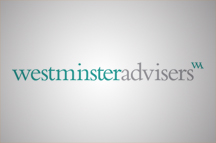 “They will soon be calling me MR. BREXIT!”, declared the new president-elect of the United States on social media in August 2016 in his typically under-stated style. In the increasingly uncertain post-Brexit world Britain now finds itself, you would expect that having a key ally who is sympathetic to Britain and supports Brexit would be a welcome and positive development.
“They will soon be calling me MR. BREXIT!”, declared the new president-elect of the United States on social media in August 2016 in his typically under-stated style. In the increasingly uncertain post-Brexit world Britain now finds itself, you would expect that having a key ally who is sympathetic to Britain and supports Brexit would be a welcome and positive development.
But as with much about the soon to be President Trump, particularly on this side of the Atlantic, we don’t really know how he will act in office. Just what will his election mean for the UK, and its relations with the USA, particularly on trade and foreign affairs?
- On trade, Mr Trump has claimed that Britain will be ‘at the front of the line’. With the EU-US Transatlantic Trade and Investment Partnership (TTIP) looking increasingly untenable, an early UK-US trade deal may be easier than previously imagined.
- However, a wave of global protectionism being instigated by the US pulling up the drawbridge at just the time that the UK needs to agree a raft of global trade deals would be concerning. The backlash against globalisation that Trump’s win was in part driven by, and which it will inevitably drive further, threatens to undermine the vision of those Leave campaigners who saw Brexit as an opportunity to become an outward facing, trading nation.
- On international security, Trump’s ambivalence about the importance of NATO, and his close relationship with Putin, are obviously concerning in Europe. Theresa May and Foreign Secretary Boris Johnson have pushed for Russian sanctions, and it seems difficult to square this hostility with Trump’s warm friendship with Russia. Mr Trump’s isolationist approach to foreign policy is significant shift which will concern the UK.
- Finally, on Brexit, while Trump is supportive of Brexit and has promised future trade deals, it is likely that Hillary Clinton may have had more influence within European capitals in encouraging them to work with Britain and offer the best possible deal. Trump may well have much less enthusiasm for putting in the long hours necessary to do this, as well as lacking the credibility with European leaders that Clinton may have had.
Positively for Britain, senior ministers including Liam Fox have strong relationships with the Republicans who now control Congress, such as Speaker Paul Ryan. But at the same time, Downing Street and the Foreign Office will be swotting up on what Mr Trump is likely to do, and who his key allies will be.
The British political establishment have probably never had poorer relationships with a new President at the time of their election. That Nigel Farage is the British politician with the closest relationship with the 45th President of the Unites States is perhaps quite revealing.
While on the surface Trump is pro-Britain and keen to build future trade links, the danger for Britain is that just at the time that we have cut ourselves off from one ally in Europe our other main ally in the US becomes more isolationist and protectionist.












